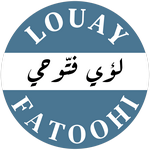O you people! Surely, We have created you of a male and a female, and made you peoples and tribes that you may know each other. Certainly, the most honorable of you in the sight of Allah is the most pious of you. Surely, Allah is Knowing, Aware. (49.13)
After stating that we have all come from the same parents, Adam and Eve, Allah goes on to tell us that piety is the only criterion that discriminates between us in His sight, i.e. in terms of the ultimate reward in the hereafter. This is expanded on in the following set of verses:
You have been the best nation that has been raised up for mankind. You enjoin what is right, forbid what is wrong, and believe in Allah. If the People of the Book believe [in Islam], it would be better for them; there are believers among them, but most of them are backsliders. (3.110) They will not harm you but a slight hurt. If they fight you, they shall turn their backs to you [to flee], and they shall not be helped. (3.111) Abasement has been imposed on them wherever they are found, except under a covenant with Allah and a covenant with men, and they have become deserving of wrath from Allah, and humiliation is made to cleave to them. This is because they disbelieved in the verses of Allah and slew the prophets unjustly. This is because they disobeyed and exceeded the limits. (3.112) They are not all alike; among the People of the Book there is an upright party; they recite Allah’s verses in the nighttime, falling prostrate. (3.113) They believe in Allah and the Last Day, they enjoin what is right and forbid what is wrong, and they hasten to good works. Those are among the righteous. (3.114) Whatever good they do, they shall not be denied it. Allah knows the pious. (3.115)
Note the magnificent definition of the “best nation.” It is not a nation of blood relatives or people of a particular ethnicity. It, rather, consists of those individuals who enjoin what is right, forbid what is wrong, and believe in Allah. These are the qualities that make anyone who acquires them a member of the “best nation.” This best nation doesn’t include only people of the Qur’an, but also included followers of Books that Allah had revealed to previous Prophets, such as the Torah and the Injil. This is why the word “umma (nation)” is used again in verse 3.113 which talks about the “People of the Book.”
Additionally, the Qur’an does not use the concept of “best nation” to discriminate between people in this world, for example, giving the best nation more rights than others. It only promises them rewards on the Day of Resurrection. It does not give them any special privileges in this world.
The verses above make it absolutely clear that in order to belong to Allah’s best nation, the person has to exert strenuous efforts in spreading the good message of Allah, teaching what is good, and forbidding what is evil. In today’s world there are numerous channels of communication that the Muslim can use to convey the message of Islam to people everywhere. However, the incredible growth and diversification of the means of disseminating information have not been met by adequate efforts from Muslims to teach the message of Islam. In fact, the sparse presence of Muslims in the world media has meant that these potential channels to educate people about Islam have become major sources of misinformation on a religion that was wronged and misunderstood in the West since its early days. It is true that the media in the West are free from the control of the state, but that doesn’t mean that they are not controlled and manipulated by particular interests. Unfortunately, there are many groups who have interests in discrediting Islam.
Copyright © 2009 Louay Fatoohi
Blog: http://www.louayfatoohi.com
![]() http://www.facebook.com/LouayFatoohiAuthor
http://www.facebook.com/LouayFatoohiAuthor
![]() http://twitter.com/louayfatoohi
http://twitter.com/louayfatoohi
![]() http://www.instagram.com/Louayfatoohi
http://www.instagram.com/Louayfatoohi
Website: http://www.quranicstudies.com
All Rights Reserved.

